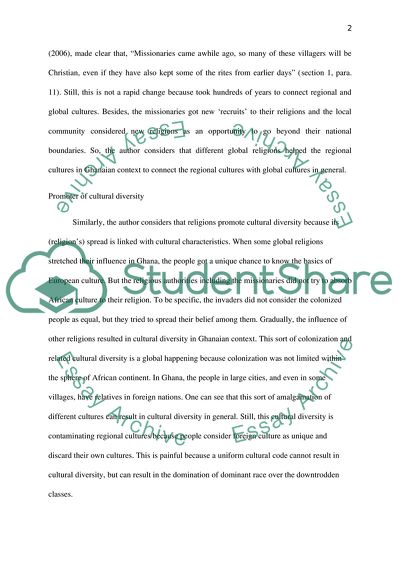Cite this document
(The Different Roles Played by Global Religions within Different Cultural Contexts Article Example | Topics and Well Written Essays - 2000 words, n.d.)
The Different Roles Played by Global Religions within Different Cultural Contexts Article Example | Topics and Well Written Essays - 2000 words. https://studentshare.org/religion-and-theology/1866296-research-2
The Different Roles Played by Global Religions within Different Cultural Contexts Article Example | Topics and Well Written Essays - 2000 words. https://studentshare.org/religion-and-theology/1866296-research-2
(The Different Roles Played by Global Religions Within Different Cultural Contexts Article Example | Topics and Well Written Essays - 2000 Words)
The Different Roles Played by Global Religions Within Different Cultural Contexts Article Example | Topics and Well Written Essays - 2000 Words. https://studentshare.org/religion-and-theology/1866296-research-2.
The Different Roles Played by Global Religions Within Different Cultural Contexts Article Example | Topics and Well Written Essays - 2000 Words. https://studentshare.org/religion-and-theology/1866296-research-2.
“The Different Roles Played by Global Religions Within Different Cultural Contexts Article Example | Topics and Well Written Essays - 2000 Words”. https://studentshare.org/religion-and-theology/1866296-research-2.


